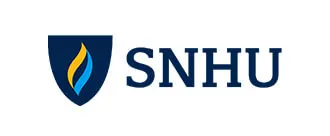If you would like to enroll in a degree program that integrates global business and forensic accounting studies, Southern New Hampshire University offers the International Master of Business Administration. You may choose the Forensic Accounting concentration. Read on for program details.
Frequently Asked Questions
What Kind of Program Is It?
Because of legislation, corporations today face increasingly stringent financial accountability requirements. The International Master of Business Administration in Forensic Accounting program at Southern New Hampshire University aims to prepare professionals to oversee a company's finances and ensure compliance. The program goes beyond traditional M.B.A. studies in that it takes a more globalized approach to business topics and accounting practices. As a program participant, you'll have the opportunity to gain knowledge of international trade and marketing, project development, and global finance. You can also learn what it takes to effectively detect and investigate fraudulent accounting procedures and white-collar crime in organizations. Ultimately, the business and financial skills you attain in this program might help you in establishing a forensic accounting career in a foreign country.
What are the Application Fees?
No application fee.
What Are the Prerequisites?
As a potential program enrollee, you should have an affinity for mathematics as well as excellent communication and organizational skills. An interest in finance, fraud prevention, and business management are important. All applicants to Southern New Hampshire University programs must have earned a bachelor's degree or equivalent.
What Are the Course Requirements?
In conjunction with ten International M.B.A. core courses*, you will be required to take four forensic accounting concentration courses. A total of 36 credits are required. Following are some curriculum subjects:
International M.B.A. Curriculum Courses
Forensic Accounting Concentration
The Forensic Accounting concentration in the International MBA consists of three specially selected courses designed to add an additional layer of expertise in this specialized field.
ACC-691: Detection/Prevention of Fraudulent Financial Statements
ACC-692: Interview Techniques/Legal Aspects of Fraud
ACC-693: Investigating with Computers
International MBA Curriculum - Core Courses
The 10-course International MBA core was developed to help students succeed in today's competitive and diverse business environment. Although topics are based loosely around a traditional MBA, course content is primarily focused on developing the skill set and strategic advantage to lead companies that do business globally.
ACC-646: Intro to Forensic Accounting/Fraud Exam
FIN-500: Financial Management
INT-601: Global Entrepreneurship
INT-610: Multinational Corporate Environment
INT-620: Multinational Corporate Finance
INT-640: Multinational Market Strategies
INT-650: International Trade and Competitiveness
INT-660: International Negotiations
INT-700: Multinational Business Strategy
QSO-635: International Supply Chain Management
International MBA Curriculum - Foundation Courses
Some students may be required to take foundation courses as prerequisites for more advanced IMBA material. Students with business-related undergraduate degrees typically are exempt from most foundation courses. In many cases, students choosing the electives track are able to apply credit hours from their foundation courses against their elective requirements.
Please speak to an admission advisor for more information.
ACC-500: Managerial Accounting
MBA-501: Mathematics and Statistics for Business
MBA-502: Economics for Business
MBA-503: Financial Reporting and Analysis
MBA-610: Business Law
OL-500: Human Behavior in Organizations
*Coursework subject to change.
What Could I Do After Graduation?
Career Opportunities
Although additional training, licensing, or education might be necessary, program graduates could consider positions such as the following:
- Forensic Accountant
- Certified Public Accountant
- Forensic Auditor
- Investigative Auditor
- Banker
- Tax Manager
- Risk and Compliance Specialist


.svg)


